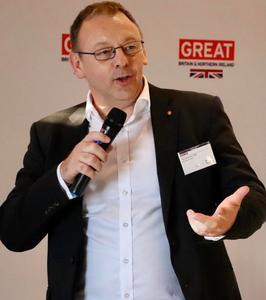Guest blog: Artificial Intelligence in Social Mobility – Help or Hindrance?
First came agricultural organisation, then industrial revolution, followed by the information age. Industry 4.0, the age of integrated technologies, is upon us. Will AI take the fun out of discovering new places, actively prevent travel or help make travel even more enjoyable?
When grappling with the climate emergency, it is very tempting to simply ban personal travel. Of course, it is never phrased in such an obvious way. We all hear of schemes like “clean air zones” and “road pricing” and “demand reduction policy”. Society 5.0-an aging population serviced by a shrinking workforce-talk of the 15 minute city, 70% urbanisation, mass rapid transit. Schemes that remove the need for any private owned personal vehicle.
We at Chipside turned the problem on its head. We asked ourselves –how could we maintain personal mobility while achieving net zero, reducing congestion, protecting the economy, both personal and societal. Do we really need to ban the car?
The intuitive answer seems to be no. Our teams then turned to the best brains in the UK to look at the petabytes of data available to us. If the right to own personal cars is something to be protected, how could we use the very best of Artificial Intelligence to balance the competing demands of family, friends, employers, supply chains. Indeed, how should define those demands and prioritise?
We are all familiar with taking the bus or walking to work on nice days, more tempted to take the car on rainy days. Or on days where a hectic schedule means travel time must be reduced. But what of other issues that might impact our personal decision to use a car? Take for example a typical car journey. As a creature of habit, I will usually jump in the car to travel to a certain car park, within easy distance of the shops I want to visit, or close to where my meeting is being held. I will know whether I can stay all day or just a few hours at the location. The smart app gives me the tariff information. I can pre book a week in advance, I can plan my day with confidence. But as I leave home, the city manager would prefer that I change from East Street Car park at £1.00 a hour to West Street Car Park. But those costs £10.00 a hour, limits me to 2 hours maximum stay and is a mile from where I want to be.
This is where AI can add real value to me as a customer of the town, and to the town manager as custodian of the smooth running of the entire space. AI engines can take the real time data from sensors, from timetables, from shops, from networks (the inputs). It can intelligently process the competing demands and make an offer to me (the output) to change my behaviour. It might do this by reducing West Street Car park to £1.00 a hour for just my single journey, authorise me to park for six hours not two and re-route an on demand bus to the car park in time for my arrival. Just for me, just for my one journey.
The Innovate UK funded Knowledge Transfer Partnership (KTP)and University of Bath will support Chipside Ltd to combine specially developed algorithms with the latest thinking in AI applications. This in turn will assist our towns and cities to deliver the UK Government’s ten-point net zero plan and see systems deployed well in advance of current target deadlines.
Further information:
www.chipside.com
https://www.bath.ac.uk/announcements/university-awarded-new-ktp-with-chipside-ltd-to-develop-ai-analysis-of-driver-behaviour

Author:
Paul Moorby OBE is CEO of Chipside, Fellow Royal Society of Arts, Fellow of Royal Geographical Society and Export Champion South West, Department International Trade
To read more from Future of Mobility Campaign Week check out our landing page here.


